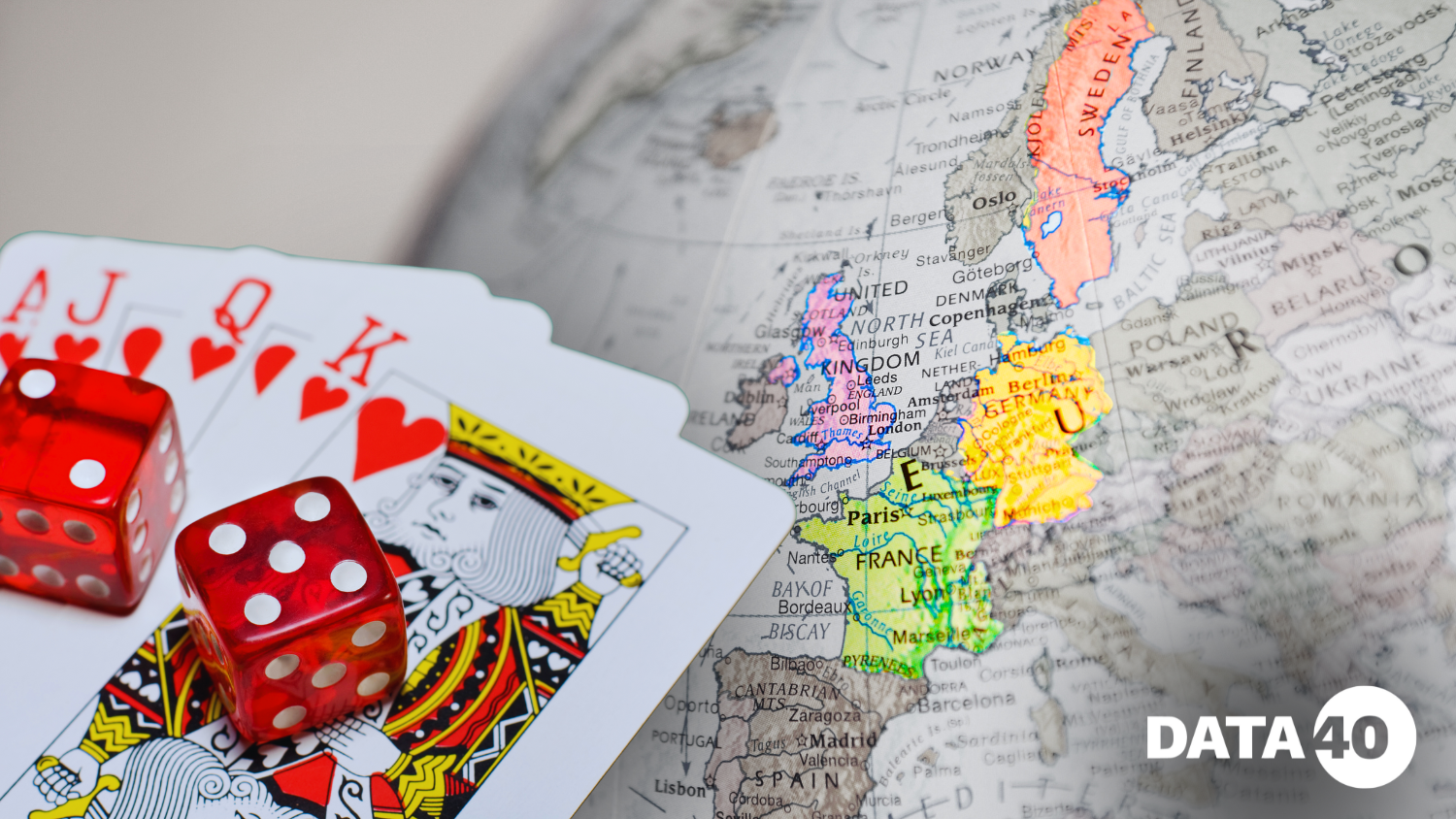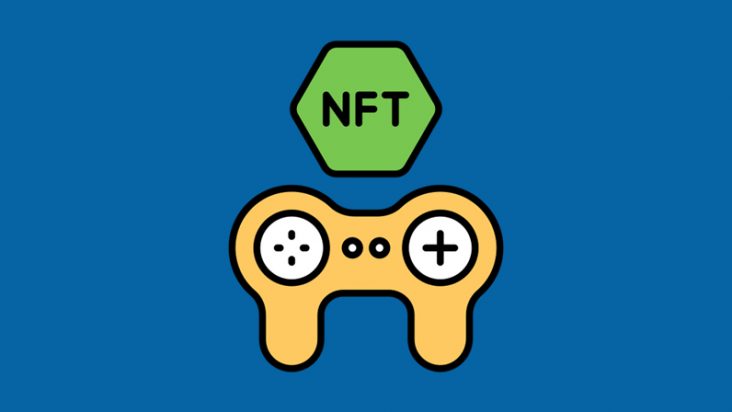

The gambling industry has experienced significant growth over the past decade, evolving into a global market with diverse forms and widespread participation. As of April 2024, the global casinos and online gambling industry was valued at approximately $305.8 billion, with projections indicating a rise to $580.36 billion by 2024, reflecting a compound annual growth rate (CAGR) of 7.4%.
In Europe, the gambling sector has demonstrated robust expansion. The European online gaming and betting market reached €38.81 billion in revenue in 2023, marking an 11% year-over-year increase. The United Kingdom emerged as the largest contributor, accounting for 30% of these revenues, followed by Germany at 12% and France at 9%.
The online gambling segment is a primary driver of this growth. Europe’s online gambling market is projected to generate €42.73 billion in 2024, with an expected CAGR of 4.43% through 2029. This expansion is attributed to factors such as increased internet penetration, the proliferation of mobile devices, and the growing popularity of online casinos and sports betting platforms.
Sports betting remains a dominant activity within the European gambling landscape. In 2023, the total amount wagered on sports betting in Europe stood at nearly $250 billion, with soccer bets comprising 54% of this total. The integration of advanced technologies and strategic partnerships has further propelled the sector’s growth, enhancing user engagement and expanding market reach.
Despite the industry’s expansion, concerns regarding responsible gambling and consumer protection have intensified. In October 2024, a scientific commission estimated that approximately 80 million adults worldwide suffer from gambling addiction, highlighting the urgent need for effective regulatory measures and support systems to address gambling-related harms.
In this article, I will look at the multifaceted landscape of gambling in Europe, examining its historical evolution, current trends, regulatory frameworks, and the challenges it faces in the modern era.
iGaming in Different European Countries
Europe’s gambling landscape is diverse, with each country exhibiting unique market characteristics and regulatory approaches. Below is an overview of the gambling industry in several key European nations.
United Kingdom
The UK boasts one of Europe’s largest gambling markets. In 2023, the gross gaming revenue (GGR) from Great Britain’s gambling industry totaled $18.7 billion, marking an increase from the previous year. The UK Gambling Commission oversees the sector, ensuring fair play and consumer protection. Recent reforms aim to modernize regulations to keep pace with the digital age.
Italy
Italy’s gambling market is the largest among selected European countries. In 2022, the GGR stood at $21.85 billion. The Agenzia delle Dogane e dei Monopoli regulates gambling activities, including online platforms. The market is characterized by a strong presence of land-based casinos and a growing online segment.
Germany
Germany’s gambling market is significant, with a GGR of $9.3 billion in 2022. The Gemeinsame Glücksspielbehörde der Länder (GGL) regulates gambling activities, including online platforms. The market is characterized by a strong presence of land-based casinos and a growing online segment.
France
France’s gambling market has a GGR of $8.5 billion in 2022. The Autorité nationale des jeux (ANJ) oversees gambling activities, including online platforms. The market is characterized by a strong presence of land-based casinos and a growing online segment.
Spain
Spain’s gambling market has a GGR of $5.5 billion in 2022. The Dirección General de Ordenación del Juego (DGOJ) regulates gambling activities, including online platforms. The market is characterized by a strong presence of land-based casinos and a growing online segment.
Netherlands
The Netherlands’ gambling market has a GGR of $2.5 billion in 2022. The Kansspelautoriteit (KSA) oversees gambling activities, including online platforms. The market is characterized by a strong presence of land-based casinos and a growing online segment.
Denmark
Denmark’s gambling market has a GGR of $1.5 billion in 2022. The Spillemyndigheden regulates gambling activities, including online platforms. The market is characterized by a strong presence of land-based casinos and a growing online segment.
Types of iGaming in Europe
Europe’s gambling market encompasses a variety of activities, each with distinct characteristics and consumer preferences. The primary types include:
- Casinos: Casinos are a cornerstone of Europe’s gambling industry, offering a range of games such as blackjack, roulette, and poker. In 2022, the European casino gambling market was valued at approximately €21.85 billion, with Italy leading the market. The market is projected to grow at a compound annual growth rate (CAGR) of over 5% from 2024 to 2029.
- Sports Betting: Sports betting is immensely popular across Europe, with football (soccer) being the predominant sport. In 2023, the total amount wagered on sports betting in Europe stood at nearly $260 billion, with soccer bets comprising 54% of this total. The European online sports betting market alone reached €15.56 billion in gross gaming revenue in 2023.
- Lotteries: Lotteries are widespread throughout Europe, with national and regional games offering substantial jackpots. In 2022, lottery games accounted for 18% of Europe’s online gambling revenue, totaling €6.7 billion.
- Gambling: The online gambling sector has experienced significant growth, driven by technological advancements and increased internet penetration. In 2022, Europe’s online gambling market reached €38.2 billion in gross gaming revenue, accounting for 35% of the continent’s total gambling revenue. The market is expected to continue its upward trajectory, with projections estimating a CAGR of 6.6% from 2024 to 2032.
- Poker: Poker maintains a strong presence in Europe, both in land-based casinos and online platforms. While specific revenue figures for poker are not detailed in the provided sources, it remains a popular choice among gamblers, contributing to the overall growth of the gambling market.
Understanding the distribution and popularity of these gambling types is essential for stakeholders aiming to navigate and invest in Europe’s diverse gambling landscape.
Legislation and Regulation of iGaming in Europe
Gambling in Europe is governed by a complex framework of national laws and regulations, with each country adopting its own approach to the industry. While the European Union (EU) does not have a unified gambling policy, it provides guidelines to ensure that national regulations align with EU principles, particularly concerning the free movement of services and consumer protection.
National Regulatory Frameworks
Each EU member state has the authority to regulate gambling within its jurisdiction, leading to a diverse landscape of laws and practices. Some countries operate state monopolies, while others have established multi-licensing systems that allow both private and public entities to offer gambling services. As of 2021, 27 out of 31 European countries have adopted multi-licensing regimes, promoting a competitive and well-regulated market.
European Union Guidelines
The EU’s role in gambling regulation is primarily to ensure that national laws comply with the internal market’s fundamental freedoms, such as the free movement of services. The Court of Justice of the European Union (CJEU) has ruled that while member states can restrict cross-border gambling services to protect public interests—such as preventing gambling addiction and protecting minors—they must demonstrate that such restrictions are suitable, necessary, and proportionate.
Licensing and Compliance
Gambling operators in Europe are required to obtain licenses from the relevant national authorities to offer their services legally. These licenses often come with stringent compliance requirements, including measures to prevent money laundering, ensure fair play, and protect consumers. For instance, the UK Gambling Commission enforces standards to ensure that gambling is conducted fairly and openly, and to protect children and vulnerable people.
Consumer Protection and Responsible Gambling
A significant aspect of gambling regulation in Europe is the emphasis on consumer protection and responsible gambling. Regulatory bodies enforce measures to prevent gambling-related harm, such as self-exclusion programs, mandatory deposit limits, and requirements for operators to provide information on responsible gambling. The Gambling Commission in the UK, for example, has the authority to grant or deny licenses to gaming establishments, ensuring that operators meet high standards of transparency, security, and responsible gaming.
Recent Developments
In recent years, several European countries have introduced new regulations to address emerging challenges in the gambling sector. For example, Ireland’s Gambling Regulation Bill, passed in 2024, includes measures such as banning daytime advertising, establishing a social-impact fund, and creating a national gambling regulator. These changes aim to reduce gambling-related harm and ensure a safer gambling environment.
Overall, the legislative and regulatory landscape of gambling in Europe is characterized by a balance between national sovereignty and adherence to EU principles, with a strong focus on consumer protection and responsible gambling practices.
Future of iGaming in Europe
The future of gambling in Europe is shaped by technological advancements, evolving consumer preferences, and regulatory developments. Key trends include:
- Technological Innovations: Advancements in technology are transforming the gambling experience. The integration of virtual reality (VR) and augmented reality (AR) is enhancing user engagement, offering immersive experiences that bridge the gap between online and land-based casinos. Additionally, the adoption of blockchain technology is improving transparency and security in transactions, fostering trust among consumers.
- Regulatory Developments: Regulatory frameworks are evolving to address the challenges posed by online gambling. The European Union is working towards harmonizing regulations to ensure consumer protection and fair competition. For instance, the European Gaming and Betting Association (EGBA) reports that 27 out of 31 European countries have adopted some form of multi-licensing for online gambling, promoting a competitive and well-regulated market.
- Consumer Protection: There is a growing emphasis on responsible gambling and consumer protection. European countries are implementing measures to prevent gambling addiction, such as self-exclusion programs and mandatory deposit limits. The Gambling Commission in the UK, for example, enforces strict standards to ensure that gambling is conducted fairly and openly, and to protect children and vulnerable people.
- Market Expansion: The online gambling market is projected to continue its growth trajectory. The European online gambling market reached €38.2 billion in gross gaming revenue in 2022, accounting for 35% of the continent’s total gambling revenue. The market is expected to continue its upward trajectory, with projections estimating a compound annual growth rate (CAGR) of 6.6% from 2024 to 2032.
In summary, the future of gambling in Europe is characterized by technological innovation, evolving regulatory landscapes, a focus on consumer protection, and sustained market growth. Stakeholders must navigate these dynamics to ensure a sustainable and responsible gambling environment.
Overview and Prospects of the European iGaming Industry
The European gambling industry remains one of the most dynamic and diverse markets globally, reflecting the region’s varied cultural, regulatory, and technological landscapes. With a market valued at €108.5 billion in 2022 and projected to grow at a compound annual growth rate of 6.6% until 2032, Europe is a global leader in innovation and market expansion within the gambling sector .
The regulatory frameworks across European countries continue to evolve, balancing market liberalization with consumer protection. The European Union’s focus on harmonizing regulations—such as ensuring compliance with data protection laws and promoting transparency—has contributed to a more competitive and responsible gambling environment. Technological advancements, including blockchain integration, virtual reality, and artificial intelligence, are reshaping the gambling experience. These technologies not only enhance user engagement but also improve operational transparency and fraud prevention, making the industry more appealing to both operators and consumers .
However, the industry also faces significant challenges, such as increasing regulatory scrutiny, societal concerns regarding gambling addiction, and the push for stricter advertising controls. Recent reforms, such as Ireland’s Gambling Regulation Bill and the UK’s measures to limit exposure to gambling ads, highlight the industry’s need to prioritize social responsibility .
Looking forward, the European gambling industry must continue to innovate while addressing public health concerns and adhering to evolving regulations. By achieving this balance, the sector can sustain its growth, maintain its global leadership, and ensure a safer, more transparent environment for all stakeholders.








